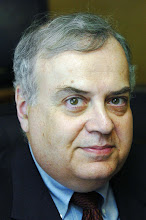When celebrities die
But when an "all-time great" dies after living a full life, it's possible their passing won't get the "play" it deserves, particularly if they rose to fame in another era and may have been mostly out of the public eye in recent years. When that happens, it's typically due to a generation gap in the newsroom.
This comes to mind today as I read about the deaths of playwright Harold Pinter and singer-actress Eartha Kitt.
These were two giants in their respective fields. But depending on where you read or heard of their deaths, they were either duly recognized for their place in history (in Pinter's case, for example, the front page of The New York Times and a lengthy "jump" inside, with an equally significant obit for Kitt on the facing page), or less so (as in the case of our newspaper this morning).
I haven't spoken with the editors yet today, and it's not my intent to spank them in public. I'm guessing their story selection was subject to the aforementioned generation gap, not inattentiveness or disinterest. Despite long, impressive resumes of groundbreaking work, Pinter and Kitt simply weren't households names for today's journalists of a certain age.
In a way, it's similar to why Pearl Harbor Day doesn't get as much attention as it once did: It doesn't resonate with much of the post-World War II generation, young journalists included.
Occasionally, our sports editors will ask me about the importance of athletes who have just died. Often, these were athletes I grew up watching, but were distant names to the young editors and they want to be sure they're giving news of the deaths appropriate space.
Sorry I wasn't in the office yesterday to tell our news guys about Pinter and Kitt.
 RSS
RSS


<< Home